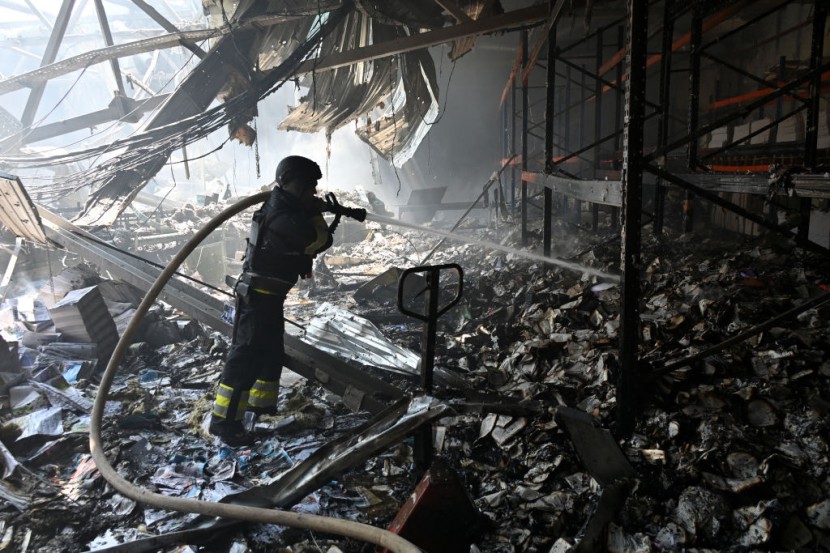
Russia's most recent incursion on Ukraine's northeastern border is a "calamity," resulting in "extreme Russian casualties," without strategic benefit, a war historian argued this week - while criticizing the Western media for its reporting on the conflict.
The "supposedly strategic benefit of the campaign for Russia was that it would limit Ukrainian attacks into Russia," American historian Phillips O'Brien wrote in a Sunday op-ed for the Kyiv Post. "If that was an intended benefit, this was probably the most disastrous own-goal, strategic calculation so far since the failure of the original invasion."
Russian troops advanced on Kharkiv on May 9 - in the largest encroachment on Ukrainian land since December 2022, with the Russians seizing 107 square miles, according to an AFP analysis. Between 5,000 and 10,000 Russian soldiers poured across the border, while Ukrainian forces were largely absent, the Guardian reported.
The northeastern province is home to Ukraine's second-largest city and has been the target of attempted Russian incursions since 2014.
"It certainly seemed very bleak for Ukraine if you were reading the press and what the analytical community were saying," O'Brien wrote. "And then all of a sudden, Russian advances ground to a halt-seeming to stop almost entirely in the Kharkiv area. So foundationally the Kharkiv offensive has basically become static for Russia-with hardly any gains after the first few days."
In the month since the initial incursion, Ukrainian President Volodymyr Zelenskyy has re-upped requests for aid from Ukraine's allies, in the Americas, Europe and Asia. Zelenskyy has maintained that the war is winnable for Ukraine but only if allies continue to provide strategic aid to the embattled Eastern European country.
O'Brien argues that Russia's plan was a strategic failure, that exposed their troops to increased risk, without sufficient gains to justify the plan. Simultaneously, O'Brien argues, Russia has inflamed the ire of the United States - which recently increased aid to Ukraine, after months of domestic political battles.
"What Russia has done with the Kharkiv offensive has opened up Russia to attack by the US system in a way that would have been inconceivable before," O'Brien wrote.
"Indeed, the offensive was so flagrantly planned to take advantage of US fears, and the Russians compounded that through their terror attacks on Kharkiv, that they caused a boomerang reaction, and the Biden Administration did its volte-face this week and okayed Ukrainian attacks into Russia with US weapons."
Ukrainian forces have reportedly already started using U.S. artillery to hit targets inside Russia after Washington approved an expanded use of them. They fired dozens of precision-guided munitions at Russian artillery, troops and a bridge on Sunday, according to the Kyiv Post.
© 2025 HNGN, All rights reserved. Do not reproduce without permission.








